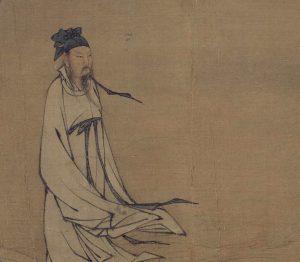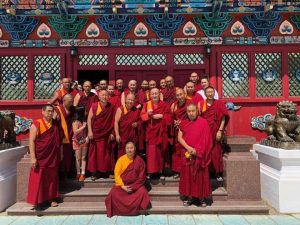
A sangha is a collection of conscious beings, awakening people working to emerge from the zombie-like sleep of the human condition. They seek to exist under a higher level of being, aligned with a higher authority than their own self-absorption. As such, there is no place for indulging animosity, jealousy, self-justification, or self-styled views. I say, “indulge,” as obviously such feelings and many more arise when in close contact with dissimilar people. In mundane life, we can satisfy all these manifold ways of propping up our particular storyline or cherished biography and purported societal role. In the context of a real spiritual assembly of practitioners, this is out of the window. This is what is meant by sacred space, not as a sanctimonious or inflated idea of our holy purpose, but a place of intention toward freedom from non-conscious existence.
The problem is that there are two warring factions entering into any spiritual work, and this is a universal fact. There is the core individual, the awakening consciousness, the nascent “soul,” if you will. It is like an infant at this point. Then there an entire army of mechanical modes of being. There is your inherent constitutional type, astrology, and set genetic makeup. Then there is the wonderfully sculpted and manufactured social self (i.e. a persona or mask). And finally there is the body itself, a perfectly ticking machine that does not require a conscious inhabitant. Yes, consciousness could pervade and own this marvelous robot, but that is just a possibility, a distant star. This situation is further complicated by the fact that the body has its own habits, but can be co-opted by those programmed emotions and thought patterns, desires, and aversions. And the mechanics of the body stir up all kinds of emotions and associated thoughts.
At the core, we are trying to bring awareness into the mechanical aspects of life. Our bodily movements, reactions, and mannerisms are all highly unconscious. Reacting all the time. Emotions are expressed constantly without our “intervention.” We feel like “I” said something, but this is all rehearsed and practiced stimulus response. If it came from our conscious self it would be different every single time. Not necessarily the words or even the tone or inflection. It would feel different in each instance. Consciousness, by its nature is never repetitive. A conscious moment is unique, no matter how many times the same situation or action occurs. It is fresh.
This represents a struggle, the real struggle of spiritual work. It may seem like we are going against the goals and purpose of culture, the sophisticated economic and social structure of life. But it is the automation of the body and the personality—biology and biography—that is the enemy of awakening. Fortunately, there is no shortage of moments, millions upon millions, for awakening. It is those small efforts, waking up to presence and not immediately indulging impulses, sensations, feelings, or thoughts, that add up to “something” within us. It is truly the tantra or inner alchemy that creates the “philosopher’s stone” within one. It is the gold produced within the form as a result of consciousness, electromagnetism (photons), and biology interacting. In fact all these are forms of energy, some slower than others.
This is the minimum requirement of a sangha. If the majority are not working to be awake in each moment, in the body, in speech, in thoughts, then who is there to keep waking up those that are not in conscious mode? It can be the teacher who understands these principles, and “manages” the consciousness of the group. But the students must take responsibility also, as that is an essential part of their training. After all, they must awaken themselves.
A sangha can be a social club, a philosophical group, a sharing of visions and ideals, doing fascinating practices and seeking the download of spiritual force. But unless the light of consciousness awakens within many moments, and for an extended time, mechanics wins out. Stopping, just stopping, is a way to see the machinery grinding away. That moment of creating a gap in the onward rolling of biological, emotional, and mental mechanics changes the entire alchemy of experience. It is a fight against the entire downward force of creation, of entropy. It is a reversal of the stream back toward unity—pre-creation as it were. It can begin with being a sangha of one.
See more
Related features from BDG
Up and Down the Spiritual Ladder
Purifying Samsara’s Grand Mess
Now or Never












